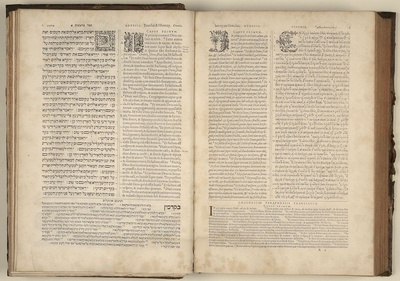
the Bible in Latin - the Vulgate
Vulgate is the name of a fourth-century Latin translation of the Bible Jerome of Stridone. In fact, the translation only received this name in the High Middle Ages, when it replaced the "old Latin version", the Vetus Latina and become the "commonly used version", versio vulgata.
St Jerome had been commissioned by Pope Damasus I in 382 to revise the existing Latin translation of the New Testament. In the period 382-405, St Jerome produced a series of revisions and translations of most books of the Bible, using a large number of Hebrew and Greek sources as his basis.
During the Counter-Reformation, the Vulgate became the authoritative Bible of the Catholic Church. Scrupulously corrected versions were printed and widely circulated (Sixtine and Clementine Vulgates). Only in 1979 they were replaced by a Nova Vulgata edition.
This Vulgaten gives the Sixto-Clementine standard text, i.e. the edition of 1592 which is also cited in in the Nestle-Aland, the Oxford Vulgate New Testament, and the Stuttgart Vulgate (together with 1593 and 1598 editions). The text is in the public domain. Brill has created CTS compliant TEI XML for it. The resulting publication is in Open Access.
Brill Polyglot Bible is not a scholarly publication. It is a showcase of possibilities.
The aim is to collect the books of the Bible in the major languages of the ancient world and to publish them in CTS compliant TEI XML on Brill Scholarly Editions.
In this way, each Biblical passage has a persistent and unique identifier and can be retrieved. This means, for example, that a reference to a Biblical passage in a monograph or journal article can be turned into a hyperlink, so readers can review the passage and its context.
A further possibility is to connect the passages to Biblical iconography using the Iconclass classification system, so readers can go from, for example, an image of the annunciation in the Lexikon der christlichen Ikonographie Online to Luke 1:26-38 in the Brill Polyglot Bible and vice versa.
Brill Polyglot Bible is in Open Access.